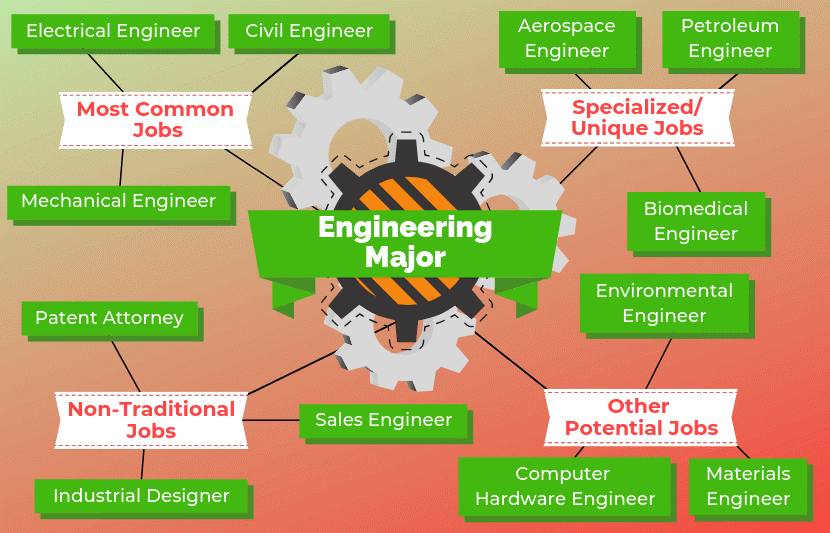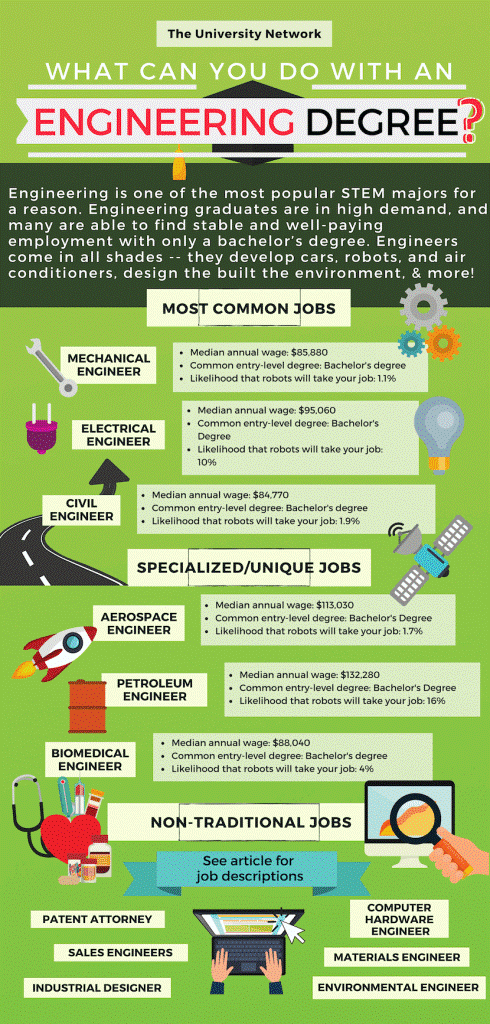
Engineers are curious, innovative and logical problem solvers who strive to understand how things work. Whether you find engineering interesting, you’ve had success in science and math, or you just enjoy applying your knowledge to the world around you, engineering might be the right path for you!
Suggested High School Courses
Regardless of what particular type of engineering you’re interested in, most engineering programs share core entry requirements. Engineering programs will expect applicants to have taken at least two of the three core sciences (Biology, Chemistry and Physics), as well as the core math courses (Advanced Functions and Calculus & Vectors) in Grade 11 and 12. Depending on your particular program of study, a course like Computer Science might also be required.
Here is a full list of suggested OVS courses for students pursuing this pathway:
Grade 11
• MCR3U Grade 11 Functions
• SBI3U Grade 11 Biology
• SCH3U Grade 11 Chemistry
• SPH3U Grade 11 Physics
Grade 12
• ICS4U Grade 12 Computer Science
• MCV4U Grade 12 Calculus and Vectors
• MHF4U Grade 12 Advanced Functions
• SBI4U Grade 12 Biology
• SCH4U Grade 12 Chemistry
• SPH4U Grade 12 Physics
Potential Programs
The field of engineering is comprised of several different streams, any of which you may choose to enter. Depending on the school, you may be required to apply to an engineering stream directly out of high school. Although certain schools have programs that allow you to begin your studies with a general area of study, and specialize later in the program. Here is a list of the most popular engineering streams:
• Computer Engineering
• Chemical Engineering
• Electrical Engineering
• Mechanical Engineering
• Robotic Engineering
• Minerals Engineering
• Nanotechnology Engineering
• Engineering Physics
• Environmental Engineering
• Biomedical Engineering
• Geological Engineering
• Software Engineering

Image Credit: The University Network
Or, see for yourself! You can search the huge selection of programs available at different post-secondary institutions. Visit this link to search university programs in Canada, and this link to search college programs in Ontario. If you’re still not sure about where your interests are, or if you’re stuck deciding between different streams, this website provides in-depth descriptions of the most common types of engineering.
Recommended Post-Secondary Institutions
We’ve compiled a list of Canadian universities and colleges that offer highly regarded engineering programs, as well as colleges that offer advanced diplomas (2-year programs) in specific engineering fields.
Universities
University of Toronto
McMaster University
University of Waterloo
Carleton University
University of Alberta
Queen’s University
University of British Columbia
Colleges
Durham College
Cambrian College
Sheridan College
Fanshawe College
Algonquin College
Conestoga College
Centennial College
Scholarships and Bursaries
It’s no secret that post-secondary study can be expensive, but in today’s society, it’s considered an investment towards a brighter future. But who doesn’t want ‘free’ money? Scholarships and bursaries are great ways to ease the financial burden post-secondary study inevitably brings. While most schools give first-year students entry scholarships based on high school averages, it’s important to know that there are many other scholarship and bursary opportunities available as well, which range in value and entry criteria.
Generally speaking, scholarships are awarded in acknowledgement of academic excellence, while bursaries are allocated based on financial or situational need. Either may be given out by the university itself or by an external source. For school-specific scholarships and bursaries, it’s best to browse the university website for a dedicated page that explains the criteria and application processes for their awards. For externally offered scholarships, the Scholarships Canada database lists hundreds of searchable opportunities each year. It’s important to apply for these awards early, as the application deadlines vary widely. Tips for filling out scholarship applications can be found here.
The application process itself also varies greatly. Some will involve writing an original essay or creative piece based on specific criteria, others will require you to provide a series of specific documents proving your academic or financial standing, while a select few will simply ask you to fill out your contact information for a luck of the draw pull. In general, the applications whose processes are more complex, and whose criteria are more specific, are the ones you have a greater likelihood of being awarded. Scholarships and bursaries do lighten the financial burden of higher education, but they also require time and effort in finding and applying for ones that apply to your specific situation.
Career Options
An engineering degree can lead you to many amazing career opportunities, but which one is right for you? Just like picking a degree, it’s important to pay attention to your skills and personal interests. As they say, if you love what you do, you’ll never work a day in your life! Here, we’ve compiled a list of potential careers that engineering graduates might choose to pursue:
• Avionics Engineer
• Systems Architect
• Video Game Designer
• Full-Stack Developer
• Business Intelligence Analyst
• Automotive Engineer
• Aerospace Engineer
• Systems Developer
• Robotics, Automation or Controls Engineer
• Hardware Design
• Software Developer
• Consulting Engineer
• Geotechnical Engineer
• Renewable Energy Engineer
• Rehabilitation Engineer

Image Credit: The University Network
Looking for career paths that are more specific to your future degree? This website details the different types of career paths you can take with specific engineering degrees. Additionally, there are many opportunities to further your education after completing your engineering degree. You can pursue a Master’s degree or PhD to study a more specialized topic, or you can enroll in a college program to obtain hands-on skills in your field.
At the end of the day, remember that the path you choose is never set in stone and the decision to change pathways should never be regarded in a negative light. Instead, consider a shift in focus or discipline as just another way of expanding your skill-sets and areas of knowledge. And, as always, OVS is here for you if you find yourself in need of prerequisite courses or upgraded marks to embark down a new path towards your ideal future.
